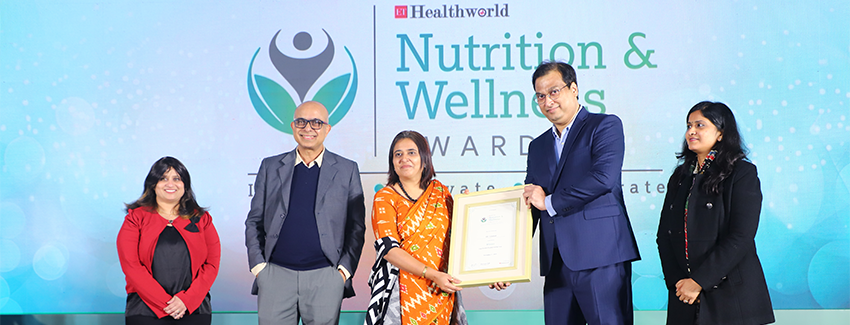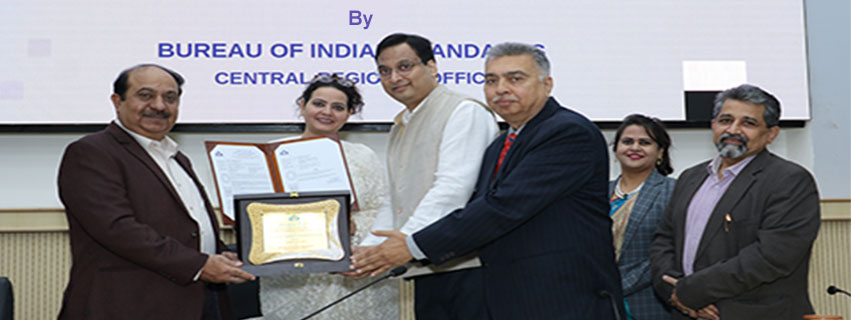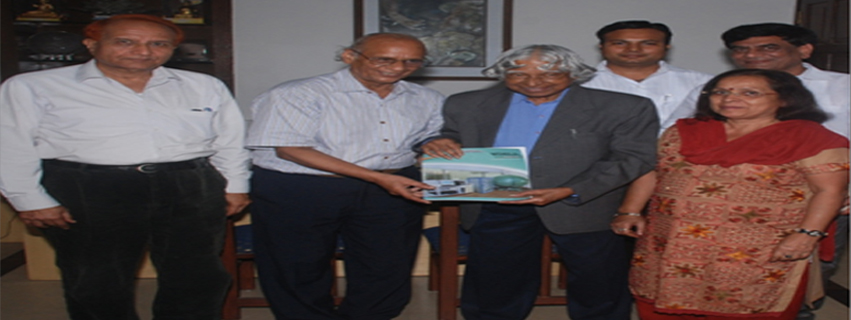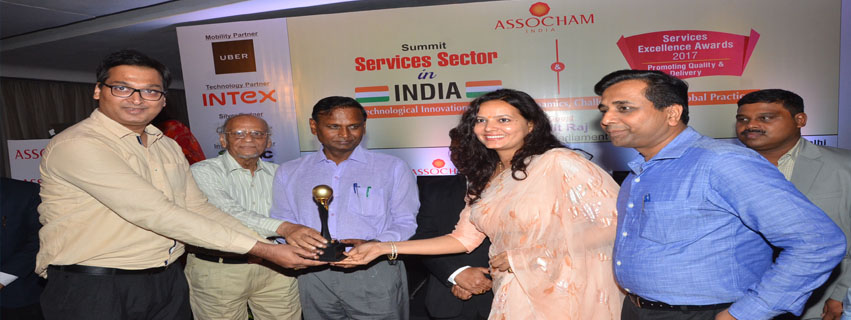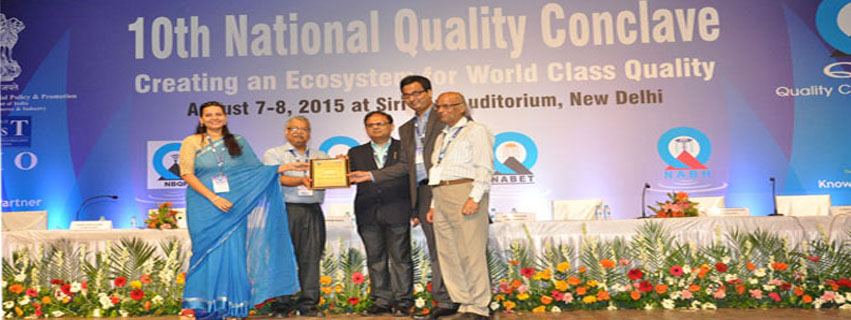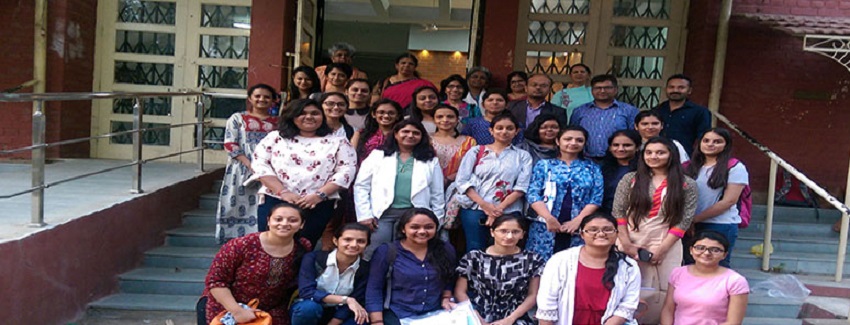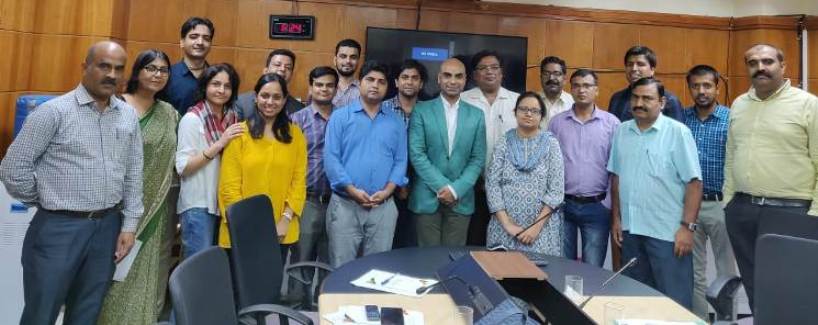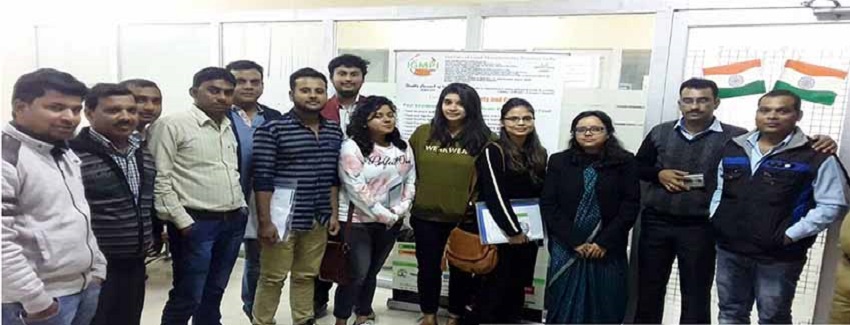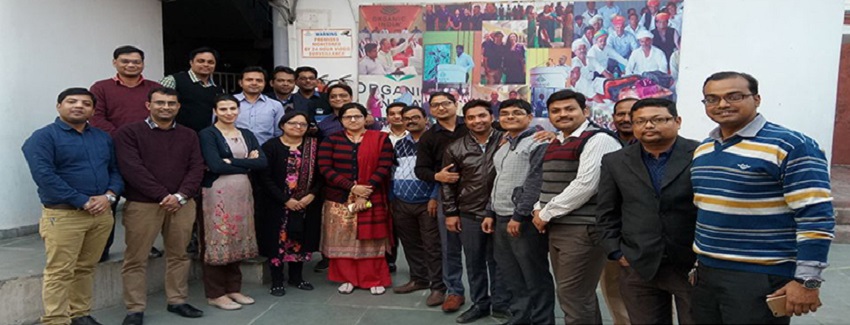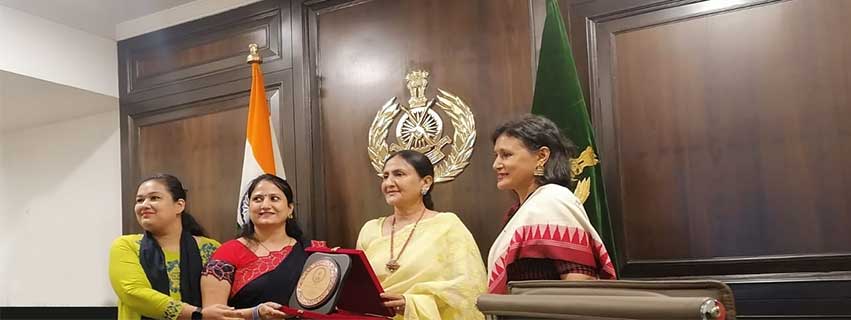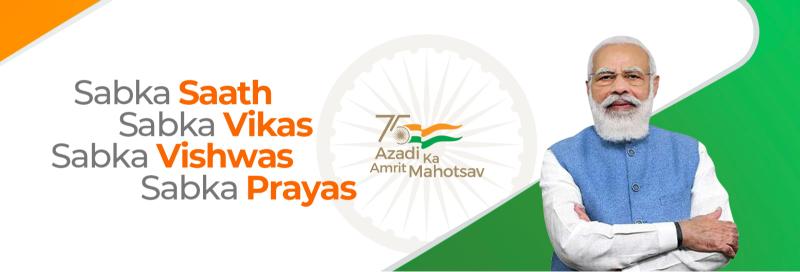(An Autonomous Body Recognized by Ministry of Commerce & Industry, Government of India)
Competency based placement focussed Education | Training | Research | Consultancy
Professional Certification in Environmental Impact Assessment (EIA)
As environmental concerns intensify—from large-scale infrastructure development and industrial expansion to the depletion of ecosystems and community displacement—there is an urgent demand for professionals equipped to assess, manage, and mitigate environmental impacts in a structured and legally compliant manner. The Professional Certification in Environmental Impact, Risk Assessment and Audit is designed to develop expertise in evaluating the ecological and social consequences of developmental activities through scientific, procedural, and regulatory lenses. This interdisciplinary program provides a comprehensive foundation in the technical, legal, and policy dimensions of EIA, with a strong focus on India’s regulatory framework, including the EIA Notification 2006, and comparative global practices. Through the integration of environmental science, legal mandates, stakeholder engagement, and sustainability planning, the course prepares professionals to contribute effectively to environmentally sound decision-making, impact mitigation, and sustainable development pathways.
Programme Structure
Module 1: Evolution of EIA and International Frameworks
- Historical development: NEPA (USA, 1969), UNEP, World Bank
- India’s evolution: 1994 Guidelines to EIA Notification 2006
- Key institutions: MoEF&CC, CPCB, SEIAA, NGT
- Global environmental principles: Rio Declaration, SDGs
Module 2: EIA Process and Baseline Assessment
- Key stages of the EIA process: Screening, Scoping, ToR formulation
- Baseline study methods: physical, biological, and socio-economic parameters
- Importance of baseline data in impact identification and prediction
Module 3: EIA Notification 2006 – Legal Framework and Procedural Requirements
- Categorization of projects: A, B1, B2
- Clearance process: ToR issuance, public hearing, appraisal, EC
- Key amendments: 2009, 2016, and Draft Notification 2020
- Institutional roles: MoEF&CC, SEAC, SEIAA, NGT
Module 4: Environmental Data Collection and GIS Applications
- Environmental and socio-economic data protocols
- Land use and land cover (LULC) mapping
- GIS, remote sensing, and spatial overlay analysis in EIA
- Sensitivity analysis and spatial risk zoning
Module 5: Environmental Impact Statement (EIS): Content, Structure, and Reporting
- Mandatory components of EIS
- Integration of baseline data, impact prediction, and EMP
- Balancing technical detail with public accessibility
- Common issues in documentation and expert review
Module 6: Impact Prediction, Evaluation, and Environmental Management Planning
- Air dispersion analysis and pollutant forecasting
- Water resource and hydrological impact tools
- Ecological and biodiversity forecasting techniques
- Mitigation hierarchy: avoid, reduce, mitigate, compensate
- EMP structure: mitigation measures, roles, budgets, and timelines
Module 7: Environmental and Risk Assessment in EIA
- Role of risk assessment in project-level EIAs
- Hazard identification, exposure analysis, and consequence evaluation
- Risk assessment methods
- Integration of risk outcomes in EMP and Disaster Management Plans
Module 8: Public Participation, Environmental Clearance and Compliance Mechanisms
- Legal provisions for public hearings under EIA 2006
- Enhancing transparency, inclusivity, and grievance mechanisms
- Environmental Clearance (EC) process under EIA 2006
- Third-party audits and performance indicators
- PARIVESH portal and digital reporting tools
Module 9: Future of EIA and Sustainability Integration
- EIA in the context of ESG, SDGs, and net-zero transitions
- Tools: Strategic Environmental Assessment (SEA), Cumulative Impact Assessment (CIA)
- Role of EIA in green financing, carbon neutrality, and climate resilience
- Strengthening institutions and public accountability mechanisms
Module 10: Industrial Case Studies and Policy-Level Integration
Eligibility
Graduates in any discipline are eligible for our Post Graduate Diploma, Executive Diploma and Professional Certification Programmes.
Programme Duration
The minimum duration to complete the Professional Certification programme is 6 months and maximum is 12 months.
Programme Mode
Registration is currently open for Part-time (Online Live Classes) mode.
Programme Deliverables
A comprehensive study material for all the modules in hard copies ensuring the needs of the audience. The accompanying training material is appropriately aligned with the current Industry’s expectations.
- Interactive or online live sessions on all key areas of the programme giving all flexibility to the participants
- Online Live Classes/Part-time for all the modules will be conducted on the weekends. Moreover, a doubt clearing session will also be scheduled before the examination
- All the efforts are made by IGMPI faculty members to make the entire programme modules easily understandable
- Assessment and evaluation for all the programme modules in order to enhance the levels of competencies and skills of the participants leading towards the objective of application in the job
- At the end of each programme modules, the trainers shall obtain feedback from the participants using specially designed questionnaires
- All learning and training delivery initiatives shall be conducted in English
Examination and Certification
All the participants are obliged to timely submit completed assessment assignments (during the programme, usually after every module) and appear for an online proctored exam at the end of the programme. After successful completion, the participants will be awarded Professional Certification in Environmental Impact Assessment (EIA) by IGMPI. For all the above-mentioned modules elaborate programme material, self-assessment assignments and project work details would be provided by the Institute from time to time. Details get updated on the webpage as well.
Discipline in Classes and Examination
Every student is required to observe a disciplined behaviour during her/his classes, assessments & examinations and to follow instructions from the Professors. Any act of indiscipline may result into discredit & it will be mentioned in her/his academic report.
Placement Assistance & Corporate Relations
The Institute has partnered with many organizations for providing with placement assistance to its participants. Besides, it has a robust placement cell comprised of senior level Human Resources professionals and Talent Acquisition experts which maintains close links with business and industry. This cell is continuously engaged in promoting the employability of our participants and encouraging the concerned Human Resource department and Hiring Managers to recruit/hire our participants for their vacant positions. The efforts of our placement cell also include helping with professional resume writing and interview skills.
In recent months, the Institute has witnessed more and more participation from professionals working with global think tanks. The IGMPI ‘s Corporate Resource Division actively recommends our students and training participants for various job requirements and specialized roles to Human Resource, Talent Acquisition as well as the heads of various departments in the industrial sector on a regular basis.
Future career prospects
Graduates of this program will be well-positioned to build impactful careers in environmental consultancy firms, project appraisal agencies, and regulatory bodies such as the Ministry of Environment, Forest and Climate Change (MoEF&CC), State Environment Impact Assessment Authorities (SEIAAs), and statutory organizations like the Central Pollution Control Board (CPCB) and State Pollution Control Boards (SPCBs). With growing regulatory stringency under the EIA Notification 2006 and its proposed amendments, there is rising demand for professionals who possess a robust understanding of the technical, legal, and procedural dimensions of Environmental Impact Assessments.
Career opportunities also exist in infrastructure, energy, mining, and industrial corporations that require skilled experts to manage their environmental clearance, compliance monitoring, and impact mitigation responsibilities. EIA professionals are increasingly being hired for roles in environmental auditing, third-party inspections, ESG integration, sustainability reporting, and environmental financing assessments.
Well-known Indian consultancy firms and environmental service providers hiring EIA professionals include EQMS India Pvt. Ltd. based in Delhi, Environ India (P) Ltd. in Bhubaneswar, Ramky Enviro Engineers Ltd. in Hyderabad, Hubert Enviro Care Systems Pvt. Ltd. (HECS) in Chennai, Kadam Environmental Consultants in Vadodara, , and Greencindia Consulting Pvt. Ltd. Major public sector undertakings such as Mecon Ltd. and Engineers India Ltd. (EIL) also recruit for EIA-related projects in infrastructure, oil and gas, and metallurgical sectors.
In addition, several larger companies and corporations across sectors require EIA specialists in their in-house ESG, sustainability, or project planning teams. These include Larsen & Toubro (L&T), Tata Consulting Engineers, Reliance Industries Limited, Adani Group, NTPC Limited, Indian Oil Corporation, Vedanta Ltd., JSW Steel, GMR Group, and Hindustan Zinc. Multinational engineering and environmental firms such as AECOM, Jacobs Engineering, ERM India (Environmental Resources Management), and WSP India also offer significant opportunities in technical assessments, due diligence, and international project compliance.
As India continues to pursue rapid industrial and infrastructure development alongside stricter environmental oversight, skilled EIA professionals will be critical in ensuring that growth is achieved in an environmentally responsible and legally compliant manner.
Programme Fee Details
Programme fee details will appear here.
Last date for submitting completed Application Form: 17th Feb 2026.
For further enquiries, call or write to us on:
18001031071
(Toll Free -9:00 am to 5:30 pm IST-except on Central Government holidays)/
info@igmpi.ac.in
NEWSLETTER
Other Programmes
- Business Responsibility and Sustainability Report (PCBRSR)
- Chemical Safety (PCCS)
- Corporate Social Responsibility Compliance (PCCSRC)
- Corporate Sustainability Reporting Directive (CSRD) Compliance and Reporting (PCCSRDCR)
- Energy Audit and Compliance Management (PCEACM)
- Enterprise Risk Management (PCERM)
- Environmental Management Systems (ISO 14001:2015) Lead Auditor (EMSLA)
- Fire Safety Audit (PCFSA)
- Environmental Social and Governance (PCESG)
- Geospatial Data Science (PCGDS)
- Green House Gases (GHG) Measurement, Reporting & Verification (PCGHGMRV)
- Healthcare Waste Management (PCHWM)
- Occupational Health and Safety Management Systems (PCOHSMS)
- Psychological Health and Safety at work (PCPHSW)
- Certified Solar PV Technician (CSPVT)
- Solar, Wind, and Hybrid Energy Systems (PCSWHES)
- Water Quality and Management (PCWQM)

